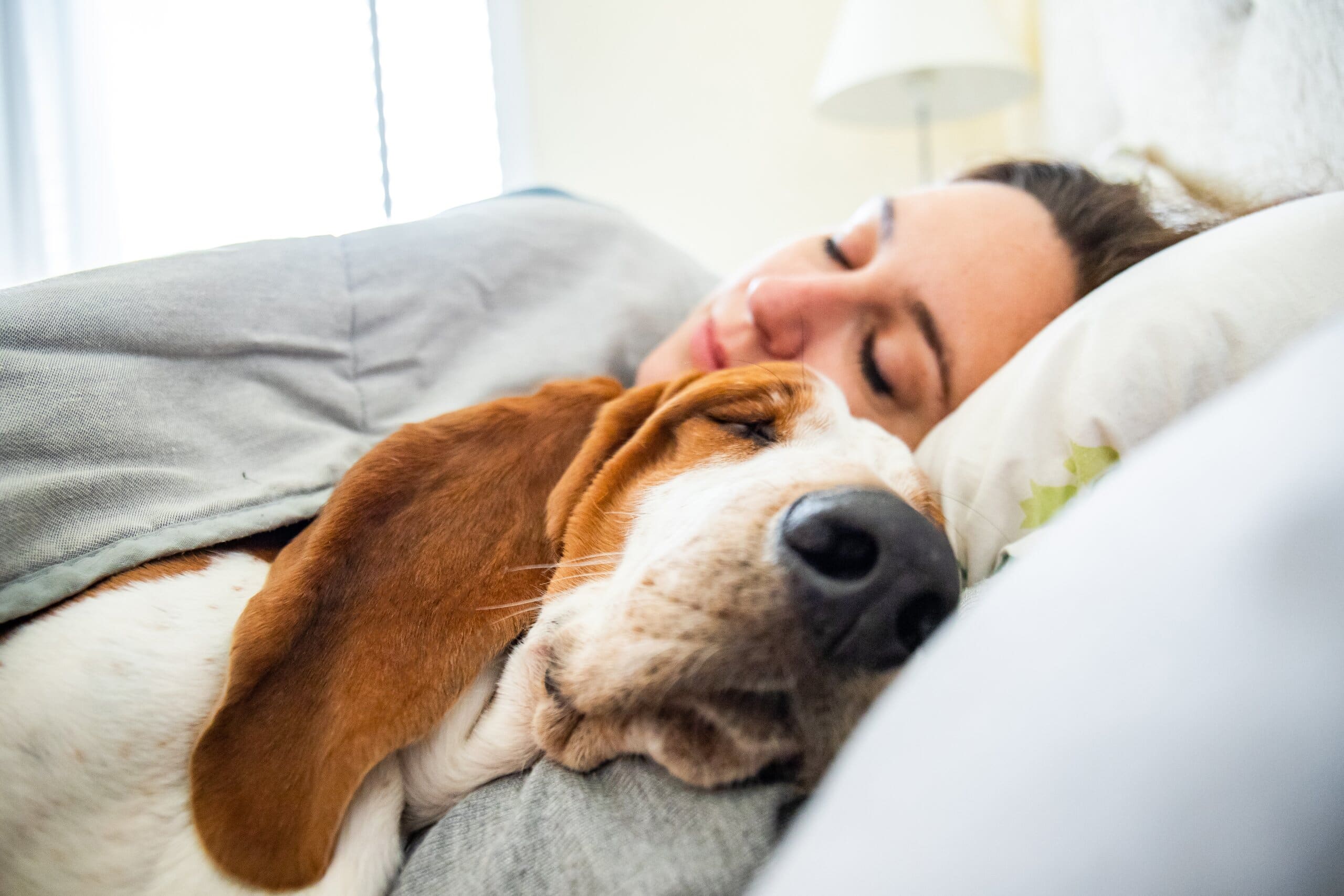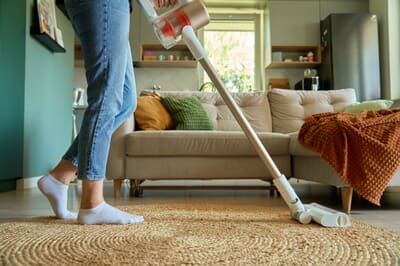You might’ve experienced bringing home a new puppy, adamant you won’t be letting it jump on the sofa, let alone sleep in your bed. Fast forward a couple of weeks, and those big puppy eyes have got you sacrificing half of your king size as your furry friend stretches out next to you.
Whether that situation sounds familiar, or if you’re trying to convince your partner that your dog should be allowed to squeeze in between you both, you'll be pleased to know there are actually some surprising benefits to sharing your bed with your pooch (and even sleeping with your cat!).
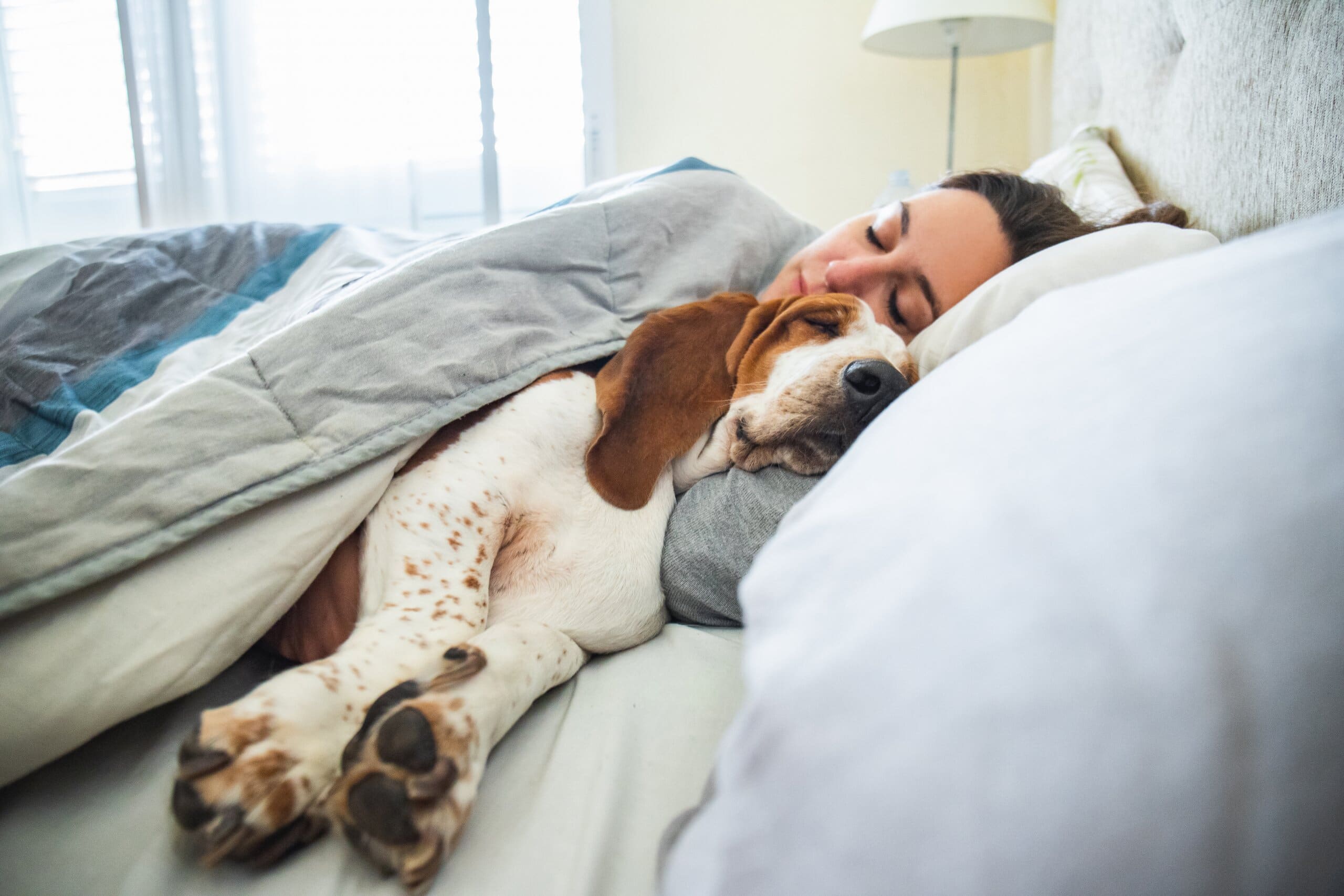
1. You’ll sleep more deeply
Research has shown that letting your dog share your bed actually helps you relax, as it increases levels of oxytocin in the brain. Oxytocin - also known as ‘the love hormone’ - helps you sleep deeper, as you feel content and safe.
One study even found that people who sleep alongside their dog are less likely to need sleeping pills than those who do not. They also had fewer annual doctor visits, so letting your dog share your bed really is good for you!
2. You’ll experience less nightmares
Sharing your bed with your dog can also help prevent nightmares, especially if you suffer from nighttime anxiety or PTSD.
Dogs are known for having an excellent ability to read emotions in humans, and can act as stress-relieving companions for those suffering with mental illnesses. By feeling calm, relaxed and safe at bedtime, cuddling up with your pooch, you’ll be less likely to have vivid nightmares or experience night terrors.
3. You’ll feel safe and protected
Your dog’s instinct is to protect you - you’re their best friend, afterall! Historically dogs have been trained to protect their owners, and even a little Border Terrier is likely to put up a fight if someone were to cause you harm.
This sense of protection and security - whether it’s real or imagined - is going to make you feel far more at ease come nighttime, helping you drift off without any worries of intruders.
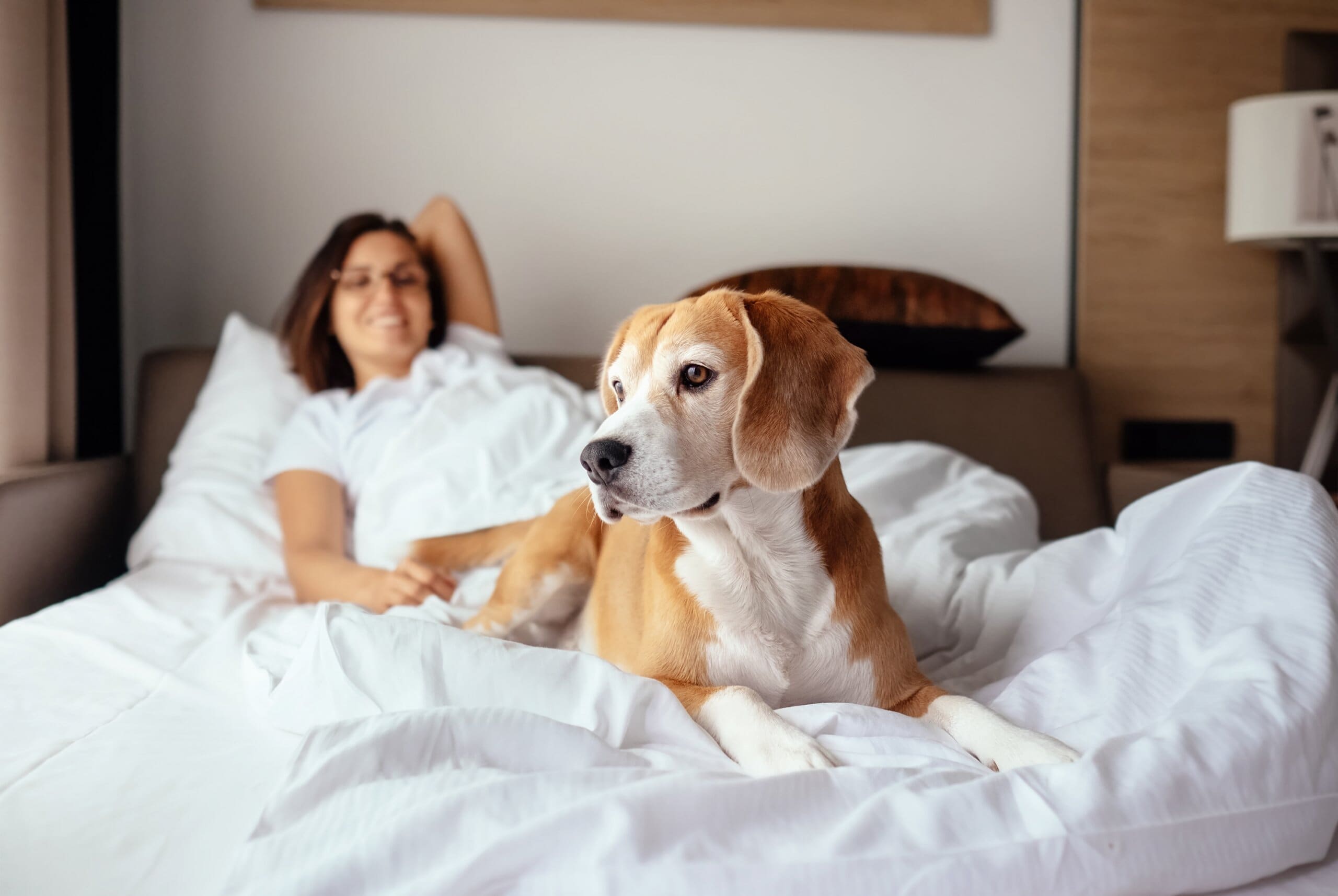
4. Lowers your stress levels
High levels of cortisol - the stress hormone - makes it very difficult to fall asleep. Research has shown that simply petting a dog can significantly lower your cortisol levels, and release the same hormone that mothers get when they bond with their newborn. Totally makes sense if you see your dog as your baby!
5. Your blood pressure will lower
By reducing your cortisol levels and increasing oxytocin, dogs actually help to lower your blood pressure.
High blood pressure puts strain on your blood vessels and can cause headaches, chest pain and even lead to sleep apnea.
These symptoms can make getting to sleep very difficult - and even dangerous - so curling up next to your dog is good for your health all round!
6. You’ll experience less allergies
Having pets in the home, especially cats and dogs, can improve your immunity. Pets in the house will influence the bacteria in your home, which researchers say an exposure to will help strengthen your immune system.
What’s more, children who live with pets have been found to experience less allergies when they grow up, due to being exposed to these microorganisms from an early age, and having built up a tolerance.
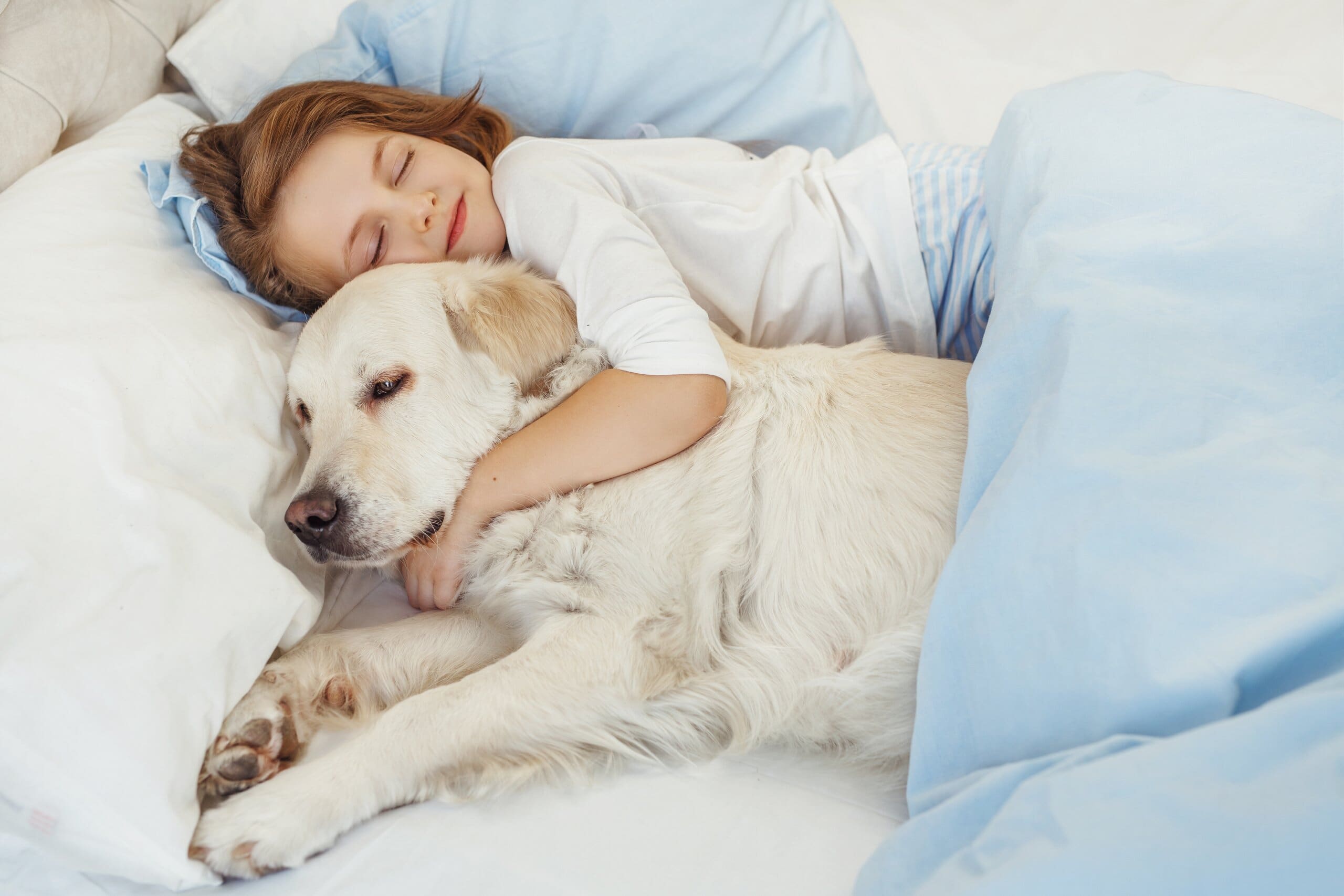
Make sharing your bed with your pet as practical as possible
Of course, sleeping with your dog in your bed does come with some risks, so here’s some tips to make sure it’s a safe environment for the both of you.
Make sure your bed is big enough
It’s important for both your comfort and safety that your bed is the right size to accommodate you, your pet, and whoever else might be sharing your bed.
You don’t want to end up accidentally kicking your dog in the night, and it’s important that you can sleep in a position that allows your body to relax properly, without waking up with aches and pains from having to curl up around your dog.


Be extra careful if your children share your bed
If you often have children co-sleeping with you, make sure your pet isn’t likely to cause an obstruction to their breathing during the night. Our blog post on co-sleeping with your child will give you more tips for this, too.
If you have a baby sleeping in bed with you, we’d recommend you don’t let your pet join, as the risks are simply too high.
Walk your pet before bed and keep a consistent routine
Make sure your dog has had plenty of exercise during the day, and is tired out by the time you want to head to bed. This will ensure they don’t bother you by wanting to play all night while you’re trying to sleep.
Keeping a consistent bedtime routine is also important, so your dog knows when it’s time to settle down.
Wash your bedding regularly
We recommend you change your bed sheets once a week, and your pillows two to three times a week. This might seem like a lot of laundry to do, but germs build up on your bed pretty quickly.
If you have pets in your bed, germs, bacteria and dirt will build up even faster - think of all the dirty places your dog goes! So make sure you’re maintaining a clean and hygienic sleeping environment.
